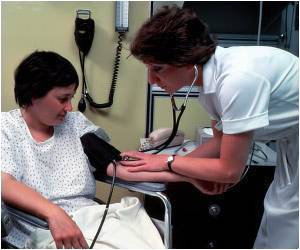
Sarna points out that since nurses and midwives make up more than 50 percent of all health care providers in most countries, they are the logical candidates to affect lifestyle changes among patients and increase health awareness. Worldwide, there are more than 19 million nurses and midwives, she said.
The 38-page report issued by the WHO highlights evidence-based, value-added nursing interventions that have been shown to reduce such risk factors as tobacco use, alcohol dependence, physical inactivity and unhealthy diets.
"The examples contained in the report are proven activities that nurses can start doing today to make a meaningful impact with their patients and in their community," Sarna said. "Many of the interventions have been proven to reduce costs and improve the quality of care."
Sarna notes that tobacco control has been one of the biggest areas of missed opportunity. Tobacco use is the leading preventable cause of death in the United States and worldwide and is the one risk factor that cuts across all four of the non-communicable disease categories. Nursing intervention studies support the idea that nurses can play a major role in helping smokers quit.
As the roles and responsibilities of the nursing profession continue to evolve in many countries, the findings of the WHO report validate the important role of nurses and midwives not only in caring for patients in times of need but also in prevention. In that regard, the report is intended to encourage nursing schools to offer curricula that addresses nurses' role in counseling people about unhealthy behaviors and encouraging smart lifestyle choices. It also highlights the importance of funding more nursing research in this area.
Advertisement
While a number of nursing and midwifery organizations have already developed position statements, model curricula and other resources to help move the non-communicable diseases agenda forward, the report stresses that it is "essential that nurses, midwives and their organizations now take an even stronger leadership role in working with policymakers to promote the integration of evidence-based nursing practice in the reduction of risk factors."
Advertisement
The report was written by Sarna and Stella Bialous, senior consultant with the WHO and president of Tobacco Policy International, and was coordinated by Annette Mwansa Nkowane of the WHO's Department of Health Systems Policies and Workforce. It is an outgrowth of two conferences held in 2012: the WHO Global Forum for Government Nursing and Midwifery Officers, and the joint meeting of the International Confederation of Midwives, the International Council of Nurses and the WHO (the TRIAD). Both meetings produced statements supporting the need for changes in policy, research and education to better prepare nurses and midwives to tackle the non-communicable diseases epidemic.









